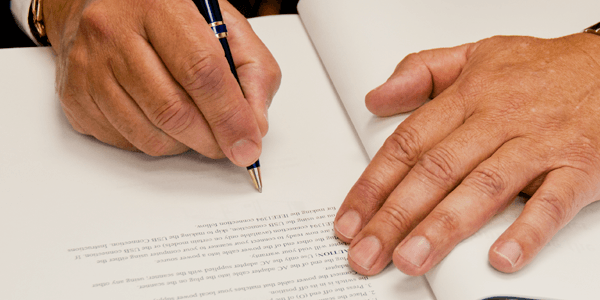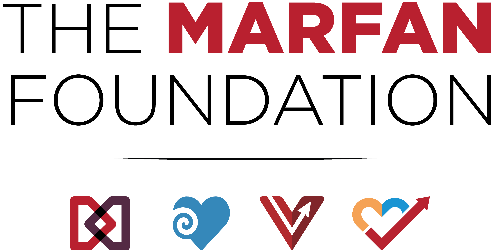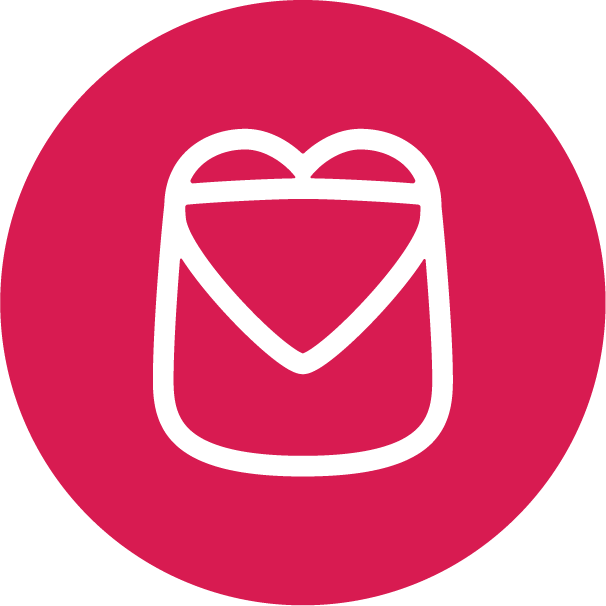Saturday April 27, 2024
Personal Planner

What Do You Own?
John and Helen have been thinking about updating their estate plan. They called and made an appointment with their attorney, Clara.
John and Helen updated Clara on their current family situation. They have three children who are now on their own and successfully pursuing careers. After listening to the short update on the three children, Clara turned to a review of John's and Helen's property.
Clara: "Before we update your plan, we need to make sure we have a complete list of your property. Let's start with a few questions. Do you have a home? Are there bank or security accounts?"
John: "Well, we do have our home. It's in both of our names. There is our joint checking account and a savings account. Both of us also have some other accounts. I have one savings account with myself and our son Bill. Helen has a savings account with our daughter Susan and another one for Helen and our daughter Linda. We have some mutual funds with a large financial company. I think that's in both our names."
Clara: "That's a good start. Now most people also have a pension or retirement plan and some life insurance. Do you have both of those?"
John: "Yes, I have a 401(k) at my work and Helen has an IRA. She had a 401(k) at one time and we rolled it over into an IRA when she changed jobs. I have a life insurance policy and I think it pays Helen $300,000 if something happens to me."
Clara: "So you have a life insurance policy. Do you know if it is a whole life, universal life or a term insurance plan? If it is a whole life or a universal life, it probably has a certain amount of cash value now."
John: "I am not real sure but it probably is a whole life plan. We bought the policy about ten years ago and I make payments every month."
Clara: "Is there any other real estate or other securities accounts?"
Helen: "When my dad passed away, he owned 640 acres of timberland. It was divided three ways between my brother, my sister and me. My share is still in my name. We don't get income from the timberland because we only cut enough timber to pay the property taxes."
Clara: "Thanks, Helen. That's helpful to know. What about personal possessions? You probably have automobiles, furniture, perhaps a collection of items or a recreational vehicle?"
John: "Yes, we have two cars. I think my car is in my name and Helen's car is in her name. Of course, we have furniture in all of the rooms of our four-bedroom home. We also have an RV that we use to take trips in the summer. I think it is in both our names."
Clara: "And are there any other types of ownership interests or business interests? Are either of you likely to receive an inheritance in the near future?"
Helen: "Yes, my mother is still living. John's parents have passed away and we received a moderate inheritance when his mom passed away. When my mother passes away, I will probably receive some additional property. When dad passed away, half of the timberland was given to the three of us and mother has the other half. When she passes away, I would guess that the three children would each receive a third of the timberland that she owns."
Clara: "This is a very good list of the assets. Let's now try to estimate the values of your property. The value will not be the initial amount you paid for each property, but a general estimate of what they are worth today."
(John, Helen, and Clara spent 20 minutes estimating the value of all of their property before moving on to discuss their debts.)
Clara: "John and Helen, there is just one more part to this inventory process. While I know you both are very careful and conservative in your financial affairs, some people have debt. Do you have a home mortgage? Is there a loan on a car or on your recreational vehicle? And do you have an ongoing credit card balance?"
John: "Yes, we do have a mortgage on the home. It still has a balance of $100,000. There is a loan on my car of about $3,000. Helen's car is paid off and we pay off our credit cards each month."
Clara: "Thanks very much for patiently working through the inventory with me. This is going to be very important as we make decisions about your estate plan."
It takes time and effort to make a list of your property. However, there are several important reasons why that property list is a crucial part of a successful plan. The list enables you to identify your assets, estimate the value, understand the best potential benefits for your children or other heirs, plan to reduce your taxes and set up goals for your children.
Identification of your property is very important. If both John and Helen pass away, the first responsibility of their executor or personal representative is to identify and list all of their assets. The inventory will be an excellent guide for the executor. Without an inventory, some assets might be forgotten, lost or eventually abandoned and transferred to state government.
Valuation is important. The values are estimates, but frequently the total value is significantly larger than you may realize. If Helen inherits added timberland from her mother, at that time the value of her one-third interest could be one million dollars. Values also need to reflect the potential reductions for liabilities. Most families are similar to John and Helen in that they have fairly modest liabilities and quite substantial total values at the time of retirement.
Benefits for children and other heirs are best determined after you list all of your property values. It's also extremely important to understand how the property is owned. Some of the property in joint ownership will be transferred under state property law to the survivor. Only the property subject to the probate process is transferred by your will.
Because many people have substantial assets in their 401(k), IRA, other retirement plan or life insurance and these assets are transferred by beneficiary designation, it is essential to help your attorney know how the property is titled and who the beneficiary is of the various retirement and insurance plans. The correct beneficiary designation enables your children or other heirs to receive benefits.
Estate taxes may be applicable for those with very large estates. Because some individuals have property that may have increased in value (the timberland owned by Helen has increased greatly in value over the past 30 years), and because there may be an inheritance that increases the estate yet further, it is important to consider the potential impact of estate taxes. A good plan can save thousands and even millions in future estate tax.
A final benefit of the inventory process is that the parents now have a much clearer picture of their assets. This enables them to make decisions that will be important for deciding the amount and type of inheritance for their children. There may be specific assets, such as family heirlooms or land that should be transferred to one child rather than the others. Because parents frequently are interested in treating children equally, knowing the approximate values of the property enables them to make plans for transfer of some assets to specific children and to maintain overall fairness in the plan.
John and Helen updated Clara on their current family situation. They have three children who are now on their own and successfully pursuing careers. After listening to the short update on the three children, Clara turned to a review of John's and Helen's property.
Clara: "Before we update your plan, we need to make sure we have a complete list of your property. Let's start with a few questions. Do you have a home? Are there bank or security accounts?"
John: "Well, we do have our home. It's in both of our names. There is our joint checking account and a savings account. Both of us also have some other accounts. I have one savings account with myself and our son Bill. Helen has a savings account with our daughter Susan and another one for Helen and our daughter Linda. We have some mutual funds with a large financial company. I think that's in both our names."
Clara: "That's a good start. Now most people also have a pension or retirement plan and some life insurance. Do you have both of those?"
John: "Yes, I have a 401(k) at my work and Helen has an IRA. She had a 401(k) at one time and we rolled it over into an IRA when she changed jobs. I have a life insurance policy and I think it pays Helen $300,000 if something happens to me."
Clara: "So you have a life insurance policy. Do you know if it is a whole life, universal life or a term insurance plan? If it is a whole life or a universal life, it probably has a certain amount of cash value now."
John: "I am not real sure but it probably is a whole life plan. We bought the policy about ten years ago and I make payments every month."
Clara: "Is there any other real estate or other securities accounts?"
Helen: "When my dad passed away, he owned 640 acres of timberland. It was divided three ways between my brother, my sister and me. My share is still in my name. We don't get income from the timberland because we only cut enough timber to pay the property taxes."
Clara: "Thanks, Helen. That's helpful to know. What about personal possessions? You probably have automobiles, furniture, perhaps a collection of items or a recreational vehicle?"
John: "Yes, we have two cars. I think my car is in my name and Helen's car is in her name. Of course, we have furniture in all of the rooms of our four-bedroom home. We also have an RV that we use to take trips in the summer. I think it is in both our names."
Clara: "And are there any other types of ownership interests or business interests? Are either of you likely to receive an inheritance in the near future?"
Helen: "Yes, my mother is still living. John's parents have passed away and we received a moderate inheritance when his mom passed away. When my mother passes away, I will probably receive some additional property. When dad passed away, half of the timberland was given to the three of us and mother has the other half. When she passes away, I would guess that the three children would each receive a third of the timberland that she owns."
Clara: "This is a very good list of the assets. Let's now try to estimate the values of your property. The value will not be the initial amount you paid for each property, but a general estimate of what they are worth today."
(John, Helen, and Clara spent 20 minutes estimating the value of all of their property before moving on to discuss their debts.)
Clara: "John and Helen, there is just one more part to this inventory process. While I know you both are very careful and conservative in your financial affairs, some people have debt. Do you have a home mortgage? Is there a loan on a car or on your recreational vehicle? And do you have an ongoing credit card balance?"
John: "Yes, we do have a mortgage on the home. It still has a balance of $100,000. There is a loan on my car of about $3,000. Helen's car is paid off and we pay off our credit cards each month."
Clara: "Thanks very much for patiently working through the inventory with me. This is going to be very important as we make decisions about your estate plan."
Why the Inventory Process is Important
It takes time and effort to make a list of your property. However, there are several important reasons why that property list is a crucial part of a successful plan. The list enables you to identify your assets, estimate the value, understand the best potential benefits for your children or other heirs, plan to reduce your taxes and set up goals for your children.
Identification of your property is very important. If both John and Helen pass away, the first responsibility of their executor or personal representative is to identify and list all of their assets. The inventory will be an excellent guide for the executor. Without an inventory, some assets might be forgotten, lost or eventually abandoned and transferred to state government.
Valuation is important. The values are estimates, but frequently the total value is significantly larger than you may realize. If Helen inherits added timberland from her mother, at that time the value of her one-third interest could be one million dollars. Values also need to reflect the potential reductions for liabilities. Most families are similar to John and Helen in that they have fairly modest liabilities and quite substantial total values at the time of retirement.
Benefits For Children and Other Heirs
Benefits for children and other heirs are best determined after you list all of your property values. It's also extremely important to understand how the property is owned. Some of the property in joint ownership will be transferred under state property law to the survivor. Only the property subject to the probate process is transferred by your will.
Because many people have substantial assets in their 401(k), IRA, other retirement plan or life insurance and these assets are transferred by beneficiary designation, it is essential to help your attorney know how the property is titled and who the beneficiary is of the various retirement and insurance plans. The correct beneficiary designation enables your children or other heirs to receive benefits.
Estate taxes may be applicable for those with very large estates. Because some individuals have property that may have increased in value (the timberland owned by Helen has increased greatly in value over the past 30 years), and because there may be an inheritance that increases the estate yet further, it is important to consider the potential impact of estate taxes. A good plan can save thousands and even millions in future estate tax.
A final benefit of the inventory process is that the parents now have a much clearer picture of their assets. This enables them to make decisions that will be important for deciding the amount and type of inheritance for their children. There may be specific assets, such as family heirlooms or land that should be transferred to one child rather than the others. Because parents frequently are interested in treating children equally, knowing the approximate values of the property enables them to make plans for transfer of some assets to specific children and to maintain overall fairness in the plan.
Published September 22, 2023
Previous Articles
Chronic Illness - Care of Your Property
Chronic Illness - Care of Your Person










